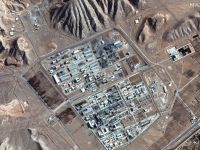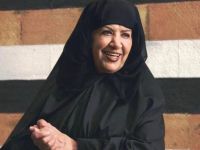The government's emphasis on income diversification has opened the country to foreign participation in the economy, particularly in the form of joint ventures. Oman is actively seeking private foreign investors, particularly in light industry, tourism and power generation. Those investors who allow technology transfer and provide employment and training for Omanis are particularly welcome. The government established in 1997 the Omani Centre for Investment Promotion and Export Development (OCIPED) to attract foreign investment and make it as easy as possible to form business and develop private sector projects.
Oman's labor law and the Oman tax law also affect a foreigner's ability to do business in Oman. Since there is no complete body of regulations codifying these laws and many government decisions are made on an ad hoc basis, investors should consider engaging local counsel. Recent changes in the tax law have, for the first time, required Omani companies to pay taxes on profits. The taxes levied on foreign companies and joint ventures were recently changed, and companies with foreign ownership of less than 90 percent are subject to the same tax as Omani firms.
Foreign investment in Oman is allowed only through joint stock companies or joint ventures. In both forms, majority Omani ownership is generally required, although joint venture industrial projects may be up to 65 percent foreign and up to 100 percent in special cases.
Privatization
Since 1998, the government has emphasized privatization of its power, telecommunications and air transport sectors. Merrill Lynch is advising the government on its privatization plans for the General Telecommunications Organization at a still-unannounced date. Credit Suisse/First Boston is doing the same for the planned privatization and expansion of Muscat’s Seeb International Airport, scheduled for 2002.
Besides these big plans, the government is allowing private investment into some of its smaller holdings, including a flour mill and Muscat port services.
Royal Decree 42/96, which became effective on June 15, 1996, authorized the creation of a Privatization Committee charged with the task of establishing a privatization program, particularly with respect to service and utility sector businesses. The Foreign Capital Investment Law applies to the participation of foreign investors in the privatization of such entities.
The Decree acknowledges that the government has set a course of slow and careful privatization in order to encourage economic growth. Priority is to be given to the service and utility industries, and special considerations must be made with regards to environmental protection in implementing privatization plans. The Decree encourages investment from abroad. Foreign investment, however, must be licensed according to the Foreign Capital Investment Law.
Oman also intends to initiate the selling of existing state assets, including holdings in a number of banks, the General Telecommunication Organization (GTO), Gulf Air and possibly the Oman Mining Co. As GTO is the second highest government revenue earner, it will not be easy for the government to let it go.
Stock Exchange
The Muscat Securities Market (MSM) lost more than 50% of its value in 1998. In 1997, it had been the world's best performing securities market before dropping from a high of 509 points in February 1998 to 228 points in December 1998. As of mid-1999, the MSM showed little sign of recovery despite the government's injection of liquidity by creating a 100 million R.O. National Investment Fund. Observers have attributed the MSM crash to speculation and over-valued offerings combined with the impact of the Asian financial crisis and the oil price slump.
The Muscat Securities Market was established in 1989 pursuant to the Law of Muscat Securities Market and Amendments (Royal Decree 53/88) and Ministerial Decision 112/88. The Exchange was modeled after exchanges in Taiwan, Malaysia and New York. The framework of the statute and regulation is rather comprehensive and sets out provisions regarding members, brokers, dealers, administrative organization, market finance, disclosure, control, disciplinary actions and the like. The Muscat Securities Market is active and sophisticated. It has acquired a good reputation in terms of management and administration. A well-known fund-raising exercise associated with the National Bank of Oman was conducted through the Muscat Securities Market, and local companies have raised funds through that market. Modifications to the Law adopted in 1994 allow foreign investors to invest in approved investment funds, up to 49 percent of the shares, and such investment funds are treated as 100 percent Omani entities and can freely invest elsewhere in the economy as such.
Oman’s Royal Decree No. 80/98 established a Capital Market Law, governing activity on the Muscat Securities Market.
Build Operate Transfer
In 1996, Oman became the first Gulf country to employ exclusively the build, own, operate and transfer (BOOT) method to a major power project, a 90 MW plant in Manah. The government has announced four new BOO power projects, including a 200 MW power project in Salalah; a 400 MW power/desalination plant at Barka; a 200 MW power plant at Sharkiya; and a 190 MW extension of the Rusayl power plant. As of mid-1999, these power projects remained in different stages of tender writing and issuance.
Principal Business Opportunities
Rank Sector
1 Petroleum and Gas Sectors Technology and Equipment
2 Electrical Machinery and Mechanical Equipment
3 Prepared Foodstuffs, Beverages & Tobacco
4 Health Care Products
5 Water Saving Technologies
6 Tourism
7 Telecommunications & Rural Electrification Projects
8 Power Plant Construction, Power Generation Equipment, Power Plant operations and Process
9 Training Programs & Other Educational Services
10 Franchising
© 2000 Mena Report (www.menareport.com)







